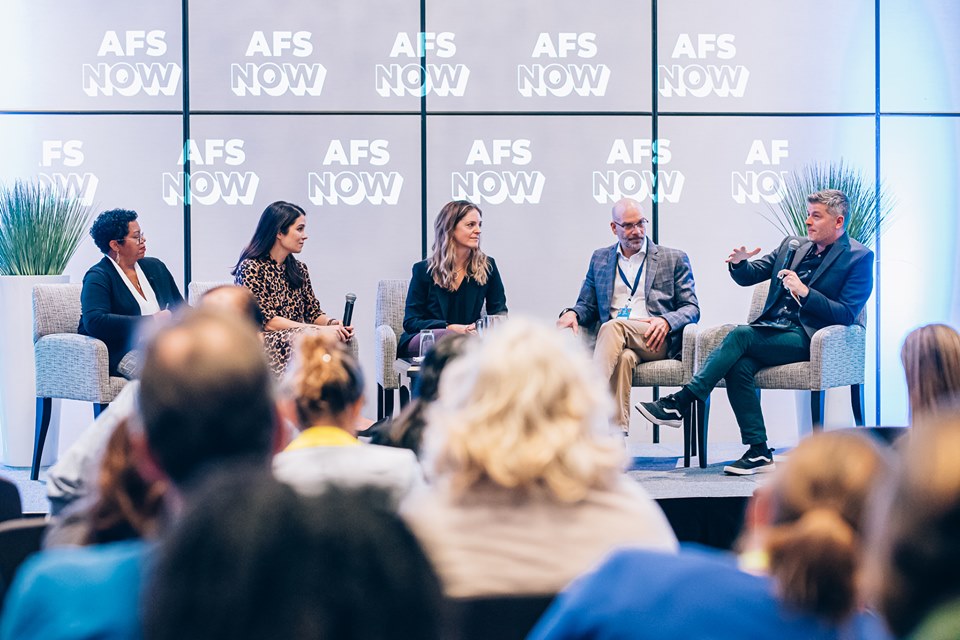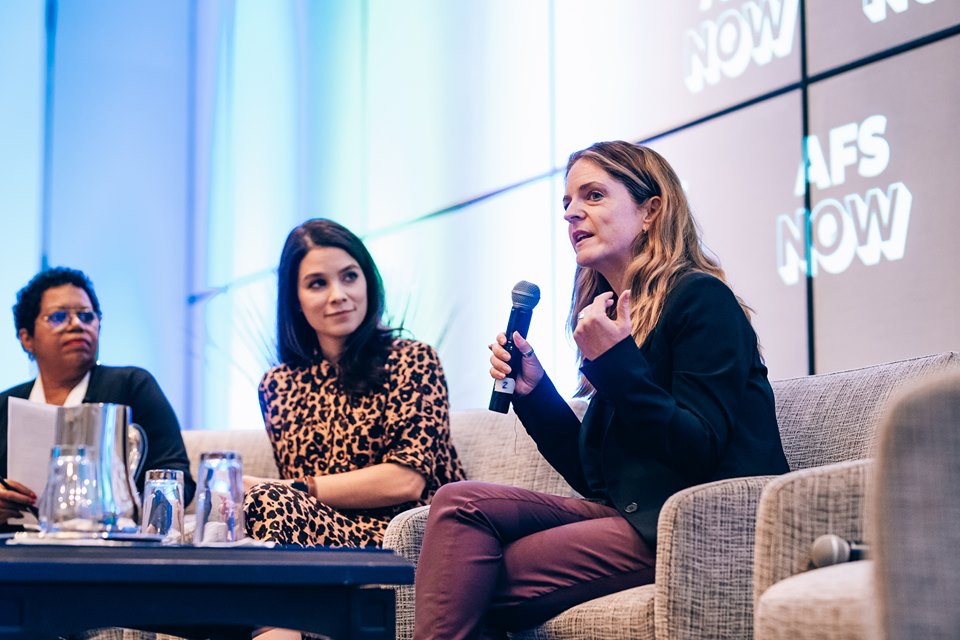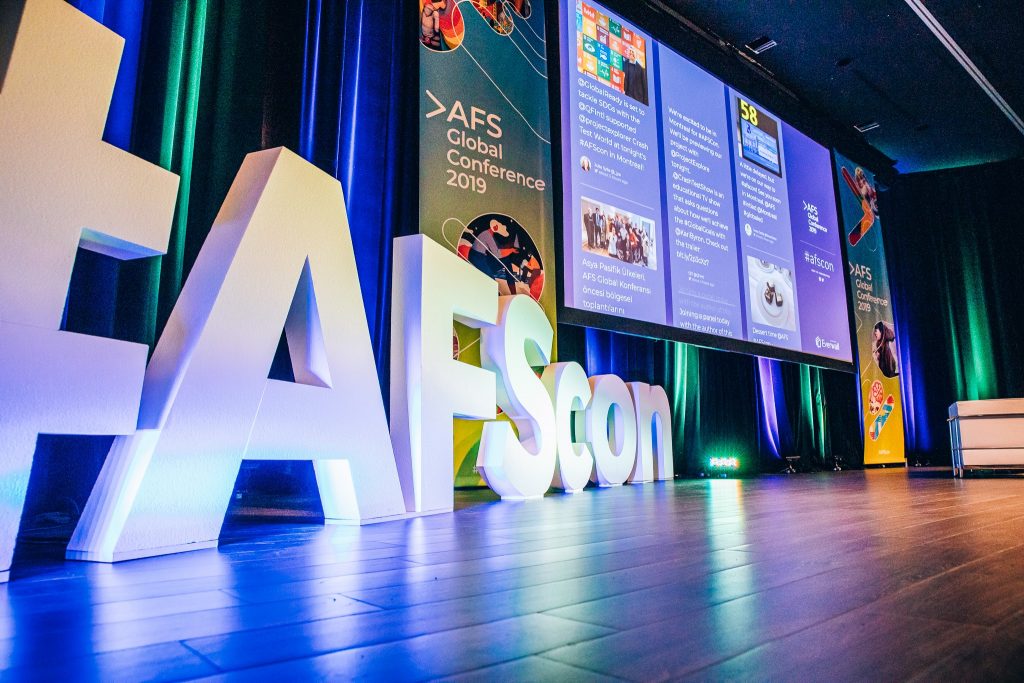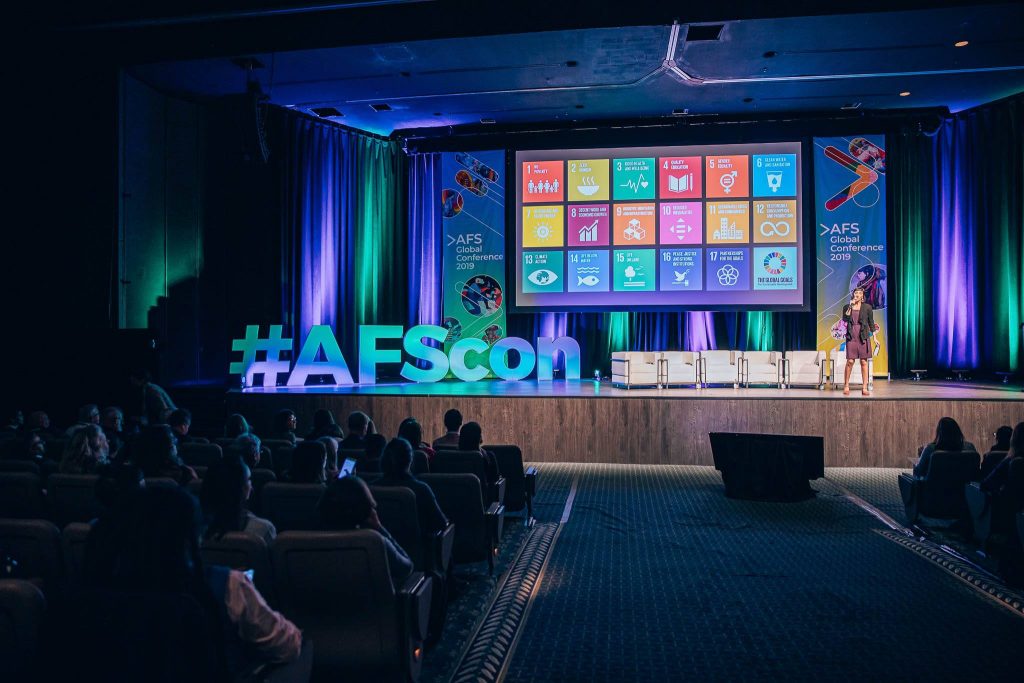AFS Global Conference 2019: Active Global Citizenship – and How to Educate for It
On October 9-11, 2019, the Global Centre for Pluralism’s Education team presented at the AFS 2019 Global Conference in Montreal, Quebec. AFS Intercultural Programs, an international youth exchange organization with offices in over 55 countries, chose as this year’s theme “Active Global Citizenship—and How to Educate for It”. The conference gathered more than 400 participants from more than 280 organizations and 70 countries.
With the goal of exploring the challenges and possibilities of creating truly inclusive educational spaces, the Centre’s Education team delivered an hour-long workshop entitled “Beyond Tolerance: Applying a Pluralism Lens to Assess Inclusion in Schools.” Approximately 25 participants attended—a mix of international scholars, educators and education professionals from various institutions and organizations.
After a brief introduction to the Centre’s Pluralism Lens Framework, participants discussed the following reflection questions in groups, focusing in particular on challenges and best practices:
- To what extent do teaching and learning practices encourage a positive response to difference?
- To what extent are efforts made to ensure that physical surroundings and the broader environment reflect local diversity and feelings of inclusion?
- To what extent do educational institutions model pluralism?
Participants highlighted a range of challenges including:
- finding a safe space for dialogue for all;
- addressing the views of all stakeholders including parents and the wider community;
- institutional and physical access for learners with disabilities;
- the inflexibility of “hardware” in education settings (for e.g. curriculum, policies, exams etc.); and
- teachers’ mindsets.
Best practices identified included:
- teacher training and virtual exchanges;
- exposure to difference through in classroom teaching, learning materials and activities;
- programs that promote soft skills;
- students’ openness to diversity; and
- teachers’ mindsets.
The Education team shared best practices from our experience and discussed how technology can help foster inclusive dialogue, the importance of storytelling as a way to promote empathy and openness, the development of good historical thinking skills, and the need for developing critical thinking and digital literacy skills in youth.
As part of conference activities, Education Manager Nicole Fournier-Sylvester participated in the UNESCO/APCEIU Europe and North America Regional Global Citizenship Education Network planning meeting and a roundtable on “Media, Education and Active Global Citizenship”. She was also part of the AFS Now Livestream session, “Trusted Sources? Improving Media Literacy to Inspire More Global Citizens” alongside three other panelists with expertise in media, social media and journalism. Nicole spoke about the ways that social media can be used to teach critical thinking skills as well as how educators can use these spaces to access and connect with under-represented or marginalized perspectives and viewpoints.
Photos by Caroline Perron.




